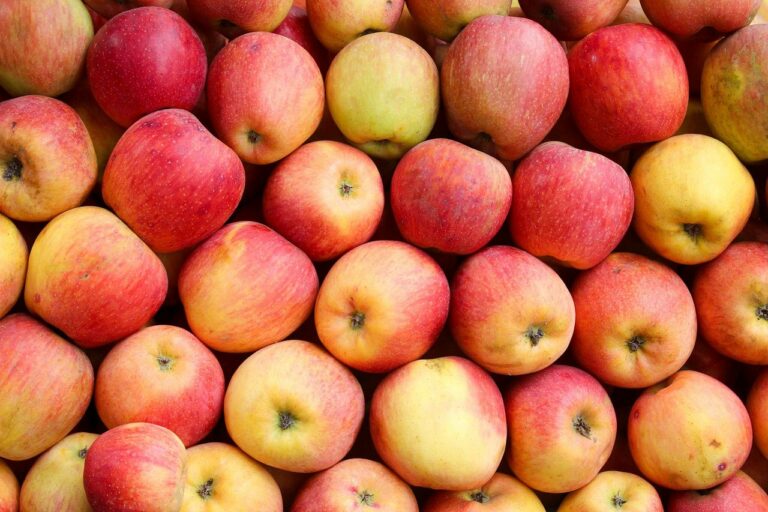Analyzing the Health Effects of Ultra-Processed Foods
In recent years, there has been a notable surge in the consumption of ultra-processed foods across the globe. These products, often characterized by their high levels of added sugars, unhealthy fats, and artificial additives, have become increasingly prevalent in the modern diet. With busy lifestyles and a growing demand for convenience, many individuals are turning to heavily processed options for quick and accessible meals.
The rise of ultra-processed foods in the modern diet is concerning due to the potential negative impact they can have on overall health and well-being. These products tend to be low in essential nutrients and high in calories, leading to a higher risk of weight gain and chronic diseases. Despite their widespread availability and appeal, it is essential for individuals to be mindful of their consumption of ultra-processed foods and strive for a more balanced and nutritious diet.
Ultra-processed foods are often high in added sugars, unhealthy fats, and artificial additives
Convenience and busy lifestyles have contributed to the increased consumption of these products
These foods lack essential nutrients and can lead to weight gain and chronic diseases if consumed regularly
It is important for individuals to be mindful of their intake of ultra-processed foods and focus on a more balanced diet
Understanding the Ingredients in Ultra-Processed Foods
Ultra-processed foods often contain a myriad of additives, preservatives, and artificial flavorings to enhance taste, texture, and shelf-life. These ingredients may include high fructose corn syrup, hydrogenated oils, artificial colors, and various chemical stabilizers. Such additives are not commonly found in minimally processed or whole foods, leading to concerns about the potential negative impact on health when consumed regularly.
In addition to artificial additives, ultra-processed foods often have high levels of added sugars, salt, and unhealthy fats. These ingredients are used to improve the palatability of the products and can contribute to overconsumption. The combination of excessive sugar, salt, and fats in ultra-processed foods not only affects taste perception but also plays a role in promoting weight gain and potential negative health outcomes.
The Impact of Ultra-Processed Foods on Weight Gain
Ultra-processed foods have become increasingly prevalent in the modern diet, contributing to a rise in weight gain and obesity rates worldwide. These heavily processed products are typically high in added sugars, unhealthy fats, and artificial additives, making them calorie-dense but nutrient-poor options. The easy accessibility and affordability of ultra-processed foods have led to their widespread consumption, often displacing more whole, fresh foods in daily diets.
Consuming a diet rich in ultra-processed foods has been linked to a higher likelihood of weight gain and obesity over time. These products are designed to be palatable and highly rewarding, leading individuals to overconsume them easily. Additionally, the lack of fiber and essential nutrients in ultra-processed foods can disrupt feelings of satiety and increase overall caloric intake, further contributing to weight gain and an imbalance in energy levels.
What are ultra-processed foods?
Ultra-processed foods are products that are significantly altered from their original form through the use of industrial processes and the addition of additives and preservatives. These foods often contain little to no whole ingredients.
Why are ultra-processed foods so prevalent in the modern diet?
Ultra-processed foods are convenient, inexpensive, and have a long shelf life, making them popular choices for busy individuals. Additionally, they are heavily marketed by food companies, further contributing to their widespread consumption.
What are some common ingredients found in ultra-processed foods?
Some common ingredients found in ultra-processed foods include refined sugars, artificial sweeteners, preservatives, food colorings, and hydrogenated oils. These ingredients are often linked to negative health outcomes.
How do ultra-processed foods impact weight gain?
Ultra-processed foods are typically high in calories, unhealthy fats, and added sugars, which can contribute to weight gain when consumed in excess. These foods are also less filling and satisfying than whole, minimally processed foods, leading individuals to consume more calories overall.
What are some tips for reducing the consumption of ultra-processed foods?
To reduce the consumption of ultra-processed foods, focus on eating whole, minimally processed foods such as fruits, vegetables, whole grains, lean proteins, and healthy fats. Meal prepping and cooking at home can also help avoid reliance on convenience foods. Additionally, reading food labels and avoiding products with a long list of additives and preservatives can help make healthier choices.







